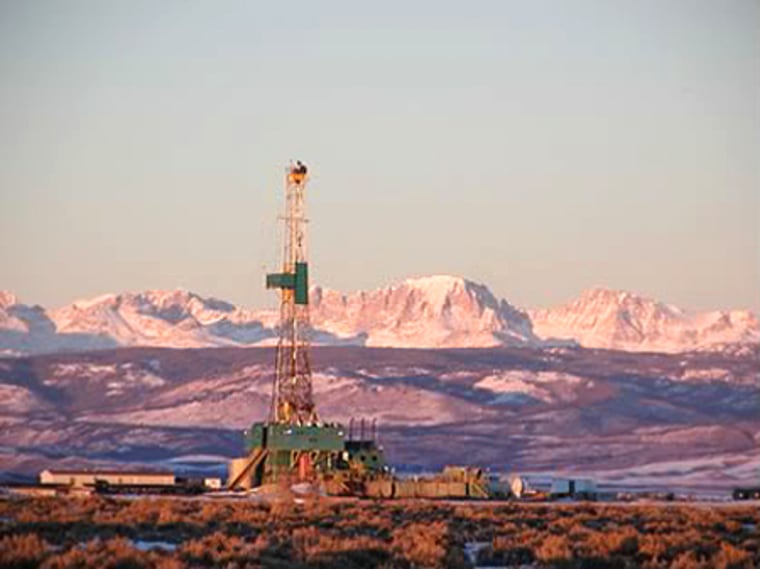A request to allow year-round drilling for natural gas on federal lands in Wyoming has heated up the energy debate as the Bush administration projects a third more applications for drilling across the West in 2006.
The public has until Nov. 19 to comment on the proposal for what’s known as the Pinedale Anticline.
The U.S. Bureau of Land Management currently bars winter drilling in the area to avoid disturbing big game. But the agency is preparing a new environmental study of the effects of year-round drilling at the request of three energy companies: Anschutz Pinedale Corp., Shell Exploration & Production Co., and Ultra Resources.
Matt Anderson, project manager for the BLM in Pinedale, said preparing the study on the effects of year-round drilling would probably take a year.
If year-round drilling is authorized, Anderson said, companies could consolidate drilling pads in a way that reduces habitat fragmentation and protects more land in winter ranges.
Spokesmen for the companies also said that allowing them to drill year-round would allow them to use more directional drilling and reduce the amount of surface disturbance.
The Upper Green River Valley Coalition, along with other conservation groups, have commented to the BLM that allowing year-round drilling on the anticline would set a precedent for drilling elsewhere.
Gov. Dave Freudenthal, a Democrat, wrote to U.S. Rep. Barbara Cubin, R-Wyo., this month saying he's concerned about "continuing pressure" on the BLM to lift seasonal restrictions that protect wildlife.
Third more applications likely
The BLM's director on Tuesday said that the number of applications for oil and gas drilling on federal land across the West is expected to jump 32 percent from 2004 to 2006.
Director Kathleen Clarke said BLM also expects an increase in the number of permits that will be processed by the agency, due to the energy law signed by the president last summer.
The agency expects to receive about 9,200 new Applications of Permits to Drill, or APDs, in 2006, Clarke said at a hearing before a Senate Appropriations subcommittee. She said the agency estimates another 10,000 APDs in 2007.
To handle the increase, most of which is due to exploding natural gas exploration, the agency is shifting staff from other agencies to seven offices in five states. As directed in an energy bill pilot program, BLM will provide work space for experts from the Department of Agriculture, the Environmental Protection Agency and the Army Corps of Engineers to help process the permits.
Six Republican senators attended the hearing and aggressively questioned Clarke on what the agency is doing to speed the permitting process.
"The cost of gas has dislocated the economy and is sending it offshore," said Sen. Larry Craig, R-Idaho. "There is nothing more important in this country right now."
Montana Republican Conrad Burns, chairman of the subcommittee, agreed. "All segments of the economy are directly impacted by the costs of fuel to produce and move our output," he said.
Logan Magruder, president of the Independent Petroleum Association of Mountain States, testified that high natural gas prices are a result of burdensome environmental reviews and laws such as the Endangered Species Act that restrict development.
Activists' concerns
Dave Alberswerth, public lands director for The Wilderness Society, said the environmental community is worried that the urgency over the oil and gas supply will prompt federal regulators and legislators to abandon important environmental protections.
Increased permitting and fewer restrictions could decrease the operating costs of energy companies, but there is no guarantee that decrease will be passed on to consumers, Alberswerth said.
"The concern that we have is that industry proponents will seize the very real problems Americans are facing this winter with fuel costs as an excuse for cutting our environmental protection standards," he said.
Clarke said the agency is looking at many different ways to meet the demand for increased access to fuels.
As directed by the new energy law, BLM is reviewing 20 sites for research on oil shale development, she said. Oil shale, underground rocks that can produce fuel, is found in Wyoming, Colorado and Utah.
